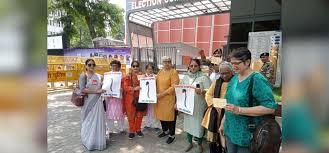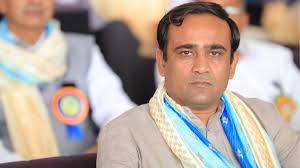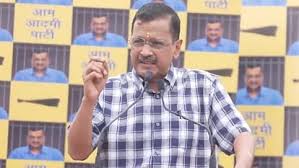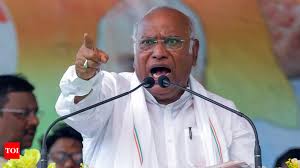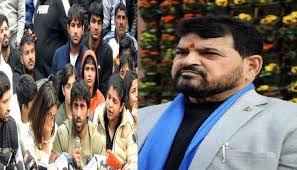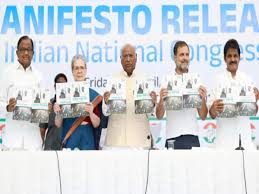
Congress's 5 guarantees should be made social Welfare policies should be considered
-Karnataka High Court's important comment, refused to accept corrupt practices
Bengaluru. Congress manifesto is in discussion amid Lok Sabha elections. Many allegations are being made against Congress by BJP. Meanwhile, the Karnataka High Court has made important comments on the manifesto brought by the Congress during the Karnataka Assembly elections. The court has said that the promises made by the Congress in the manifesto during the assembly elections may be a matter of wrong policy, but it cannot be called corrupt practice under the Representation of the People Act 1951.
Justice MI Arun made this comment while rejecting the petition filed against Congress MLA BZ Zameer Ahmed Khan. The petitioner had claimed that the promises made by the Congress were corrupt and hence the election should be cancelled.
According to 'Bar & Bench', a website that reports on court hearings, while dismissing the petition, the court said, 'The five guarantees of the Indian National Congress should be treated as social welfare policies. Whether they are financially sound or not is a different aspect altogether. This is to show other parties how the implementation of the said schemes is tantamount to bankruptcy of the state exchequer. It is possible that under the given facts and circumstances of the case they may be termed as wrong policies, but not as corrupt practices.
Shashank J. filed this petition in the Karnataka High Court. Sridhar had filed. The petitioner argues that the promises made by the Congress in its manifesto amount to corrupt practices and hence the election of the winning candidate should be cancelled.
During the assembly elections held in Karnataka last year, Congress had made five promises in its manifesto. This includes 200 units of free electricity, payment of Rs 2,000 to each female head of the family, supply of 10 kg ration to BPL family members, stipend to unemployed educated youth and free travel in state buses for women. During the hearing, the Court said that any announcement made by a party about the policy that they intend to bring cannot be considered as corrupt conduct.
,
-Karnataka High Court's important comment, refused to accept corrupt practices
Bengaluru. Congress manifesto is in discussion amid Lok Sabha elections. Many allegations are being made against Congress by BJP. Meanwhile, the Karnataka High Court has made important comments on the manifesto brought by the Congress during the Karnataka Assembly elections. The court has said that the promises made by the Congress in the manifesto during the assembly elections may be a matter of wrong policy, but it cannot be called corrupt practice under the Representation of the People Act 1951.
Justice MI Arun made this comment while rejecting the petition filed against Congress MLA BZ Zameer Ahmed Khan. The petitioner had claimed that the promises made by the Congress were corrupt and hence the election should be cancelled.
According to 'Bar & Bench', a website that reports on court hearings, while dismissing the petition, the court said, 'The five guarantees of the Indian National Congress should be treated as social welfare policies. Whether they are financially sound or not is a different aspect altogether. This is to show other parties how the implementation of the said schemes is tantamount to bankruptcy of the state exchequer. It is possible that under the given facts and circumstances of the case they may be termed as wrong policies, but not as corrupt practices.
Shashank J. filed this petition in the Karnataka High Court. Sridhar had filed. The petitioner argues that the promises made by the Congress in its manifesto amount to corrupt practices and hence the election of the winning candidate should be cancelled.
During the assembly elections held in Karnataka last year, Congress had made five promises in its manifesto. This includes 200 units of free electricity, payment of Rs 2,000 to each female head of the family, supply of 10 kg ration to BPL family members, stipend to unemployed educated youth and free travel in state buses for women. During the hearing, the Court said that any announcement made by a party about the policy that they intend to bring cannot be considered as corrupt conduct.
,
Bengaluru. Congress manifesto is in discussion amid Lok Sabha elections. Many allegations are being made against Congress by BJP. Meanwhile, the Karnataka High Court has made important comments on the manifesto brought by the Congress during the Karnataka Assembly elections. The court has said that the promises made by the Congress in the manifesto during the assembly elections may be a matter of wrong policy, but it cannot be called corrupt practice under the Representation of the People Act 1951.
Justice MI Arun made this comment while rejecting the petition filed against Congress MLA BZ Zameer Ahmed Khan. The petitioner had claimed that the promises made by the Congress were corrupt and hence the election should be cancelled.
According to 'Bar & Bench', a website that reports on court hearings, while dismissing the petition, the court said, 'The five guarantees of the Indian National Congress should be treated as social welfare policies. Whether they are financially sound or not is a different aspect altogether. This is to show other parties how the implementation of the said schemes is tantamount to bankruptcy of the state exchequer. It is possible that under the given facts and circumstances of the case they may be termed as wrong policies, but not as corrupt practices.
Shashank J. filed this petition in the Karnataka High Court. Sridhar had filed. The petitioner argues that the promises made by the Congress in its manifesto amount to corrupt practices and hence the election of the winning candidate should be cancelled.
During the assembly elections held in Karnataka last year, Congress had made five promises in its manifesto. This includes 200 units of free electricity, payment of Rs 2,000 to each female head of the family, supply of 10 kg ration to BPL family members, stipend to unemployed educated youth and free travel in state buses for women. During the hearing, the Court said that any announcement made by a party about the policy that they intend to bring cannot be considered as corrupt conduct.
,

.jpg)






